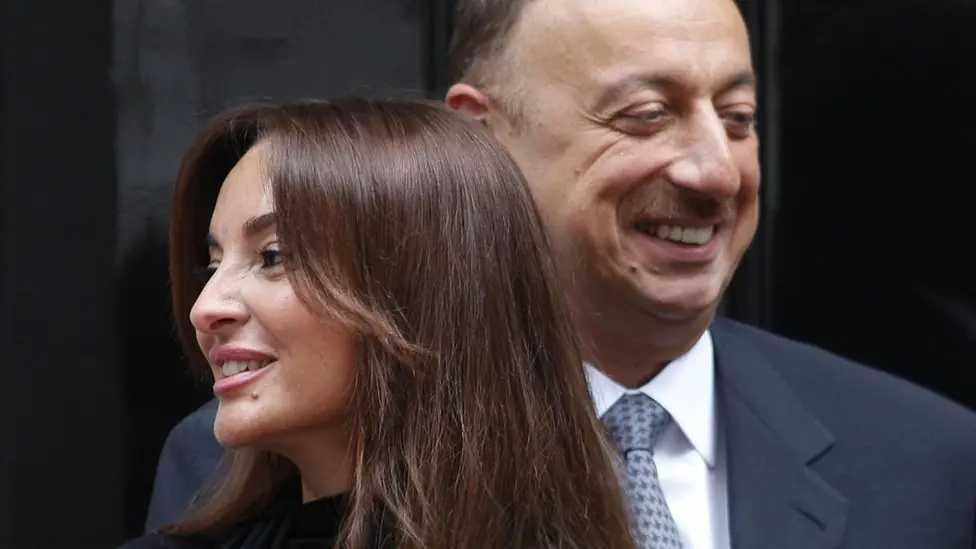The US Helsinki Commission held a hearing yesterday on ‘Georgia’s Anti-American Turn’, which focused on ‘the global consequences of Georgia’s slide into authoritarianism’.
Former President Salome Zourabichvili and former Defence Minister Tinatin Khidasheli testified at the hearing, which also included debates on ‘US policy options, such as the passage of the bipartisan MEGOBARI Act, to assist the people of Georgia as they seek to maintain their independence and longstanding, mutually beneficial relationship with the United States’.
Forgive me if I’m not bowled over with excitement.
Georgia’s democratic backsliding is nothing new, and neither is the government’s disdain and disrespect towards the US.
Yet, the US and the wider West have only taken limited measures in response. Sure, there have been some targeted sanctions, the cancellation of some funding, and a million strongly worded letters of concern, but more hard-hitting measures have still not been employed more than two years into the political crisis in Georgia.
As Georgian Dream thumbs its nose at the West, the US and the EU appear to be paralysed with inaction.
It’s not just that the bloated bureaucracies in Washington and Brussels know what to do but can’t bring themselves to do it, it’s that the call is coming from inside the house. And even worse, it’s coming from both sides of the aisle.
Let’s start with the left.
The US has prepared a piece of legislation — the above-mentioned MEGOBARI Act — sponsored by Republican Representative Joe Wilson, which would significantly increase sanctions against Georgia if the country doesn’t reverse its democratic backsliding. In addition, the bill would offer strong incentives to Georgia if reforms are undertaken, including defence aid, economic support, and visa liberalisation, among other carrots.
The bill was passed with bipartisan support in the House of Representatives in May. For some bewildering reasons, the so-called ‘squad’ — the most progressive members of the House (Representatives Alexandria Ocasio-Cortez, Ayanna Pressley, Ilhan Omar, and Rashida Tlaib) — voted against the bill, joining famed champions of progressive issues from the Republican Party like Marjorie Taylor Greene, Lauren Boebert, and Paul Gosar. I don’t know why the squad voted against the bill, and they didn’t respond to OC Media’s requests for an answer. If I were to guess, it was because they are inherently sceptical of what they consider to be US intervention abroad — this has been clear from the tepid, at best, response from the progressive wing of the Democratic Party to Russia’s brutal full-scale invasion of Ukraine.
But they aren’t alone. Over the past few years, prominent leftist media outlets like Jacobin have come out in defence of Georgian Dream and its anti-democratic policies. I mostly think this is simply the kneejerk contrarianism that the left is so fond of, because the other alternative, that the left supports a right-wing, oligarchic party like Georgian Dream, just doesn’t make sense.
Yesterday, the Tom Lantos Human Rights Commission of the US Congress held a hearing on ‘Laws Regulating Foreign NGOs: Human Rights Implications’, where the subject of Georgia’s controversial foreign agents law was repeatedly discussed.
I was deeply disappointed to see that Jacobin contributor Almut Rochowanski was invited to speak. I listened to her testimony, which was rife with anonymous sources and odd claims which are unfortunately familiar with those who cover Georgia. Rochowanski fundamentally represented Georgia’s foreign agents law (and even more bizarrely, Russia’s own foreign agents law) as being just about increasing transparency — not about creating a pretext for NGOs and media outlets that Tbilisi and Moscow consider unfriendly to be shut down.
Democratic Representative James McGovern seemed to also be perplexed, saying, ‘to be honest, that’s kinda the first time I’ve ever heard a good spin put on the Russian anti-NGO law’.
The laws are not intended to make NGOs and foreign-funded media ‘more transparent’, they are intended to create a legal pretext for them to be shut down — which is exactly what has happened in Russia and is happening in Georgia. And it’s not just that — the foreign agents law is part of a grander plan to remove all aspects of the political opposition in Georgia, including banning the main opposition parties — something Georgian Dream has openly stated.
It’s baffling to me that this misinformation about the foreign agents law is still being spread, in the US Congress no less, more than a year after the law was passed in Georgia.
As I mentioned before, the stifling of US actions on Georgia are coming from both sides. Yesterday, we published an op-ed about another perplexing decision — Republican Senator Markwayne Mullin’s blocking of the MEGOBARI Act, which contradicts his own past statements on Georgia. I’ll let the op-ed speak for itself, but I remain less than optimistic that the US will get its act together.
After all, Vice President JD Vance just said that buying oil and gas from Russia will create a ‘durable peace’.
When will the West ever learn?






